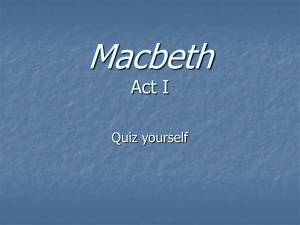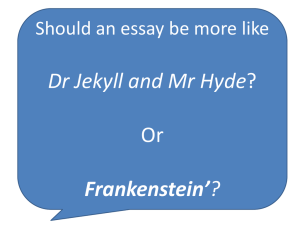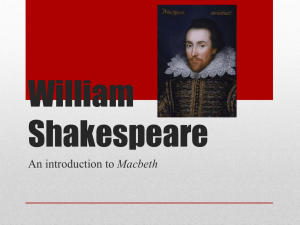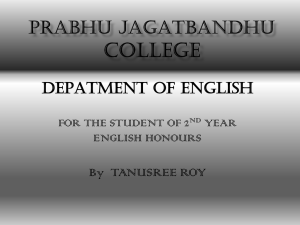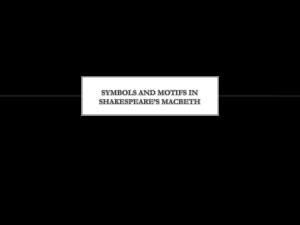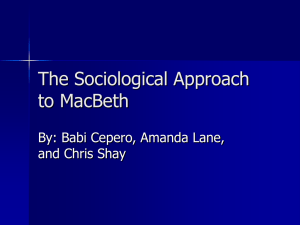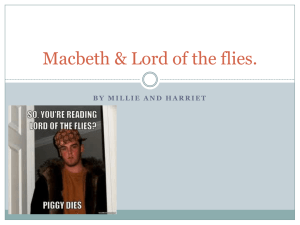Introduction to Macbeth
advertisement
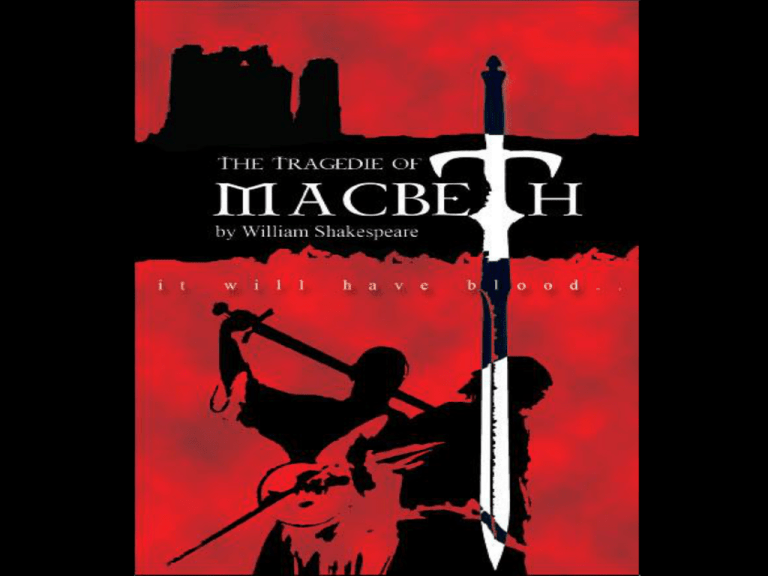
Introduction to Macbeth “Double, Double, toil and trouble; Fire burn and caldron bubble.” Origin of the play… • Written in 1606 as a compliment to King James I (James VI of Scotland), after the death of Queen Elizabeth. • Refers to James’ ancestry (he’s a descendant of Banquo) • It became known as the “Scottish Play” • James was interested in witchcraft and Scotland, and hence the themes in the play. Macbeth---Suspicions • Believed to be a cursed play—based on series of accidents with those involved with the play • Subject matter of witchcraft • When you mess with the forces of evil---evil takes part • Called “The Scottish Play” Themes in Macbeth: #1 • The Corrupting Power of Unchecked Ambition – ambition drives the couple to terrible acts in the play. The problem is that once a person uses violence to acquire power it’s difficult to stop. In order to gain more power or to stop others it becomes tempting to use violence again. Themes in Macbeth: #2 • The Relationship between Cruelty and Masculinity – in the play violence and power are associated with masculinity. In order to prove one’s manhood they have to #1, commit violent (usually murderous) acts and #2 they must acquire power Themes in Macbeth: #3 • The Difference between Kingship and Tyranny – the first, offers the kingdom order, justice, comfort, affection and most importantly loyalty to the country; • the second, instigates chaos, destruction, violence and holding their own interests over that of their country Motifs in Macbeth • Hallucinations – recur throughout the play and serve as reminders of the people who have died. Essentially, visions symbolize their feelings of guilt • Violence – between the description of the bloody wars, fights and murders, violence plays a major role in the play • Prophecy – these play major roles in instigating the action in the play; the prophecies are what set Macbeth’s plans into motion Symbols in Macbeth • Blood – is everywhere in the play, it symbolizes the guilt that “sits like a permanent stain on the consciences of characters • The Weather – the storms, thunder, lightening and unnatural occurrences in the weather “reflect corruption in the moral and political orders” Main Characters - Macbeth His three main characteristics are bravery, ambition and selfdoubt. Tragic flaws: ambition/selfdoubt Holds the title Thane of Glamis Shakespeare uses him to show the terrible effects of ambition and guilt on a man who lacks strength of character Main Characters – Lady Macbeth One of Shakespeare’s most famous and villainous characters she is stronger, more ambitious and more ruthless than Macbeth. Social restraints are the only thing holding her back. Her character implies that women can be as power-hungry and violent as men, but their place in society often denies them from acting. Main Characters – The Three Witches • Referred to as “the weird sisters” • They have beards, speak in rhyme and concoct bizarre potions—they are clearly supernatural creatures • The audience is left to decide, however, whether the Witches are “independent agents toying with human lives” or “agents of fate whose prophecies are reports of the inevitable” • Duncan—King of Scotland, trustworthy and loved by people..believes in and trusts his noblemen – Malcolm and Donalbain—sons of Duncan • Banquo—A general in the army…He lives by his morals and remains loyal to alliances…brave and ambitious…not too bright---has a son named Fleance • Macduff—Thane of Fife • Lennox, Ross, Angus, Menteith, Caithness – All noblemen of Scotland and tomorrow, and tomorrow/Creeps in this petty pace from day to day…Out, out brief candle!/Life’s but a walking shadow, a poor player/That struts and frets his hour upon the stage/And is heard no more.” ~ Macbeth “But cruel are the times, when we are traitors and do not know ourselves; when we hold rumor from what we fear, yet know not what we fear.” ~ Ross “Look like the innocent flower, but be the serpent under it.” ~ Lady Macbeth Your face is as a book, where men may read strange matters.” ~ Lady Macbeth “Fair is foul and foul is fair.” ~Witches “Tomorrow,




